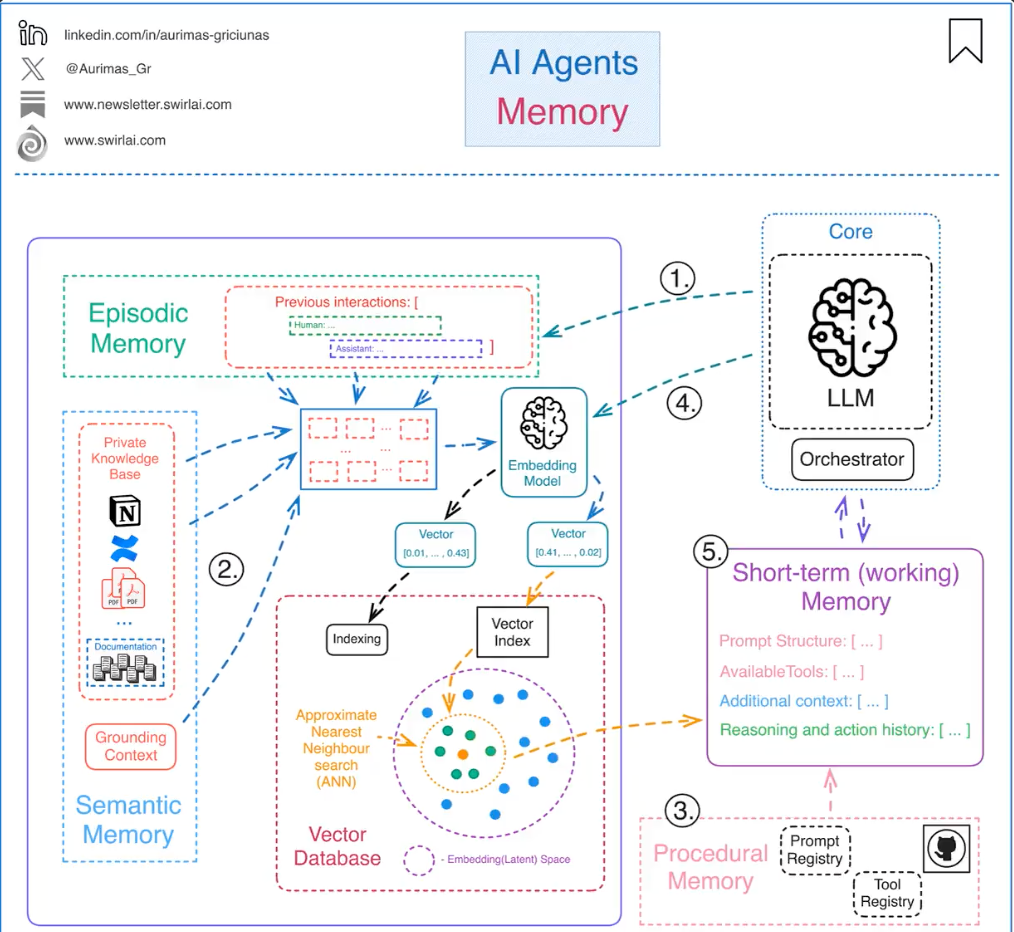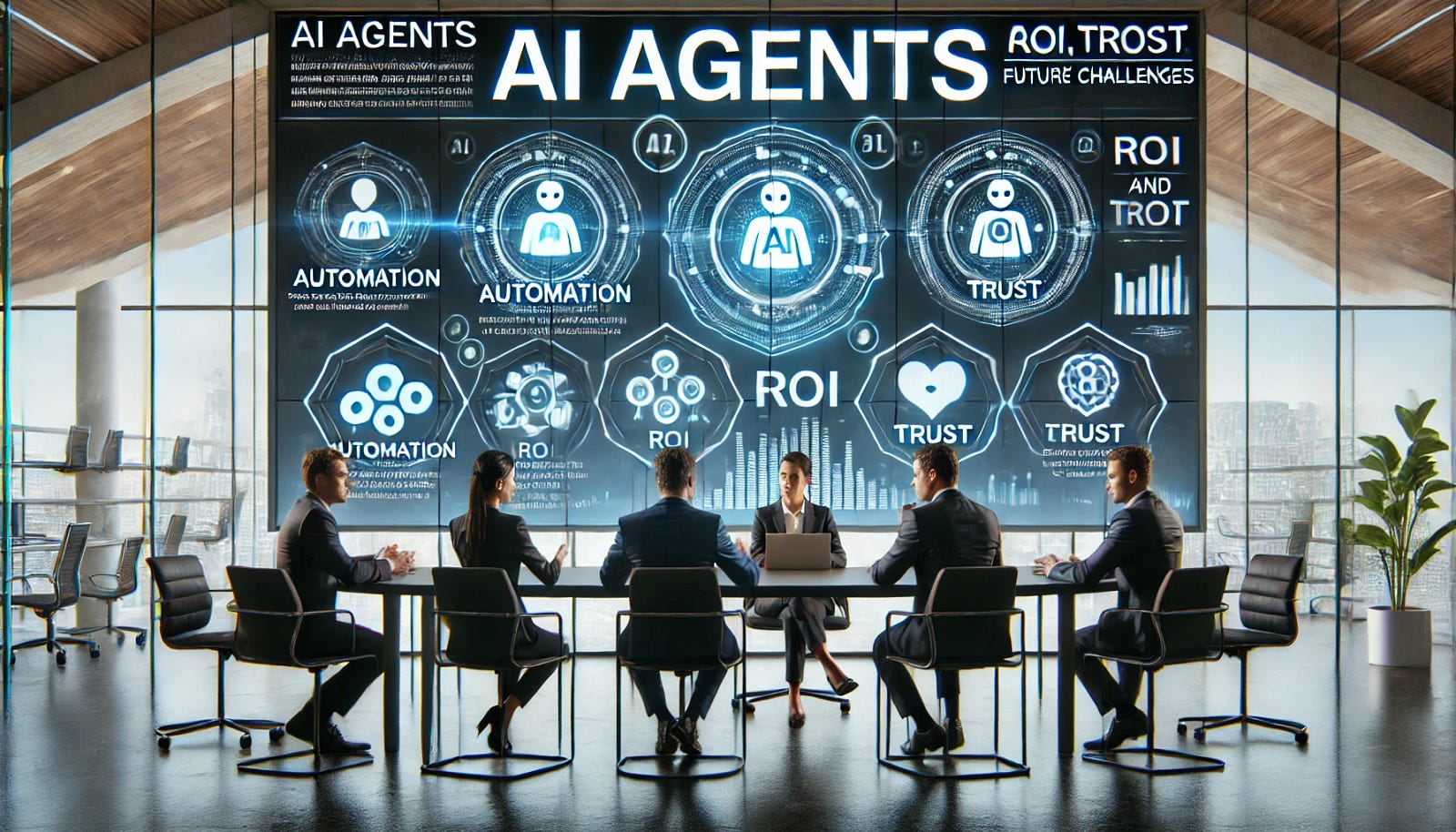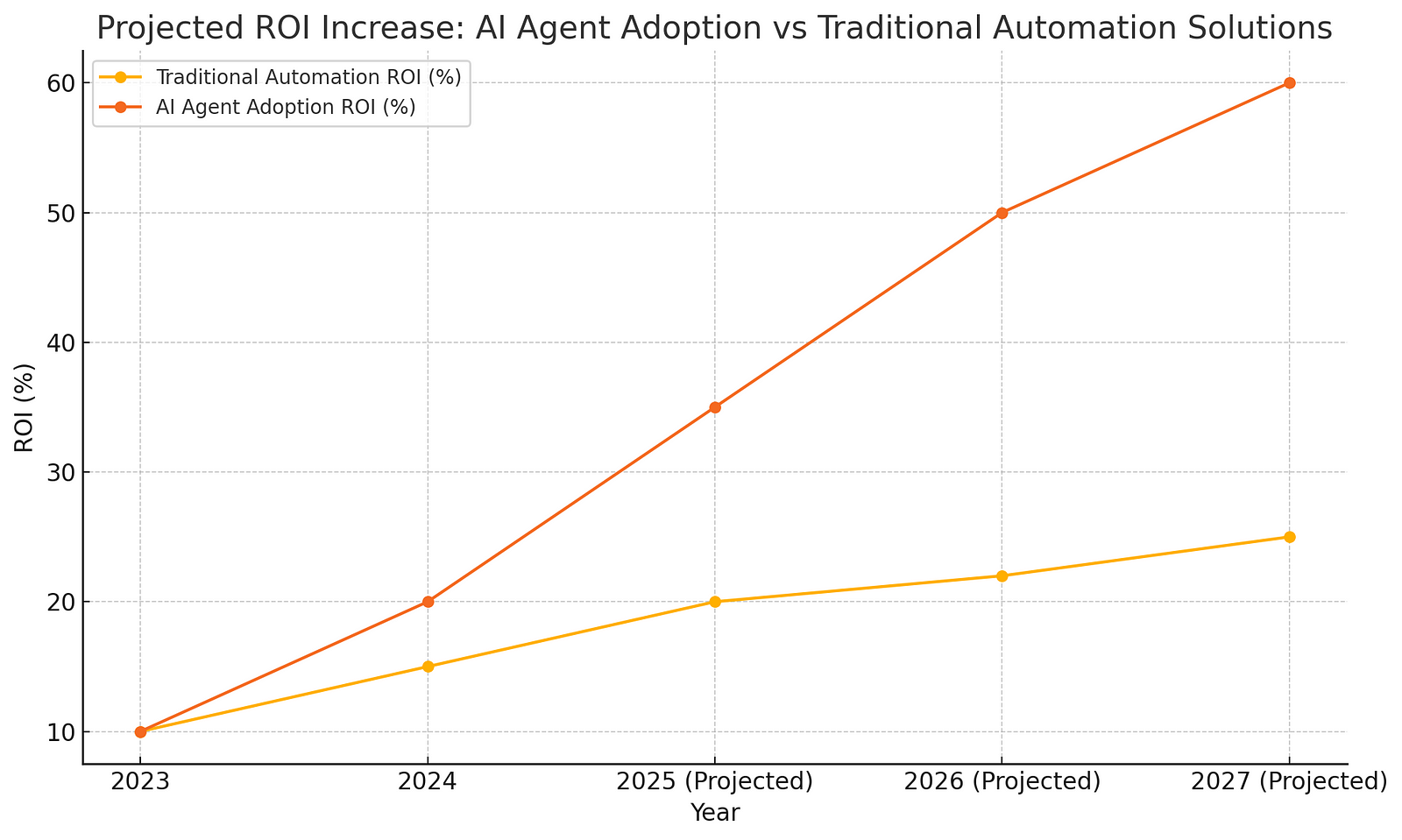- Solan Sync
- Posts
- AI Agents in 2025: The Future of Automation and ROI Unveiled
AI Agents in 2025: The Future of Automation and ROI Unveiled
Explore the rise of AI agents in 2025, with insights from industry leaders on enterprise adoption, ROI potential, and key challenges.

The Rise of AI Agents: A Look Into the Future of Generative AI in 2025
Introduction: The Shift from Chatbots to AI Agents
Technology is advancing at an unprecedented pace, and with it comes a shift in how we perceive AI applications. While chatbots were once seen as cutting-edge, the focus is now moving toward AI agents — systems that don’t just respond but act. Unlike chatbots that merely generate content, AI agents are designed to perform autonomous tasks, making them a key focus for enterprise adoption.
Major tech companies like Microsoft, Google, and Nvidia have started emphasizing agentic AI solutions. These agents, built on large language models (LLMs), aim to complete tasks, optimize workflows, and deliver actionable results.
Market Predictions and Industry Trends
Enterprise Adoption and Growth
According to Deloitte, 25% of enterprises currently using generative AI will integrate AI agents by 2025, with that number expected to rise to 50% by 2027. The promise of AI agents lies in their ability to automate complex tasks, from document analysis to real-time decision-making.
Despite this optimistic outlook, challenges such as bias, hallucinations, and the energy demands of AI systems remain unresolved. These risks could impact the reliability and safety of agent-driven actions, making oversight crucial.
Expert Insights: Preparing for AI Agent Adoption

Several industry leaders have weighed in on what the rise of AI agents means for businesses:
Dr. John Licato, computer science professor:
“Companies will need strong guardrails to ensure that agents perform as intended. Without proper validation, errors in action-taking AI can be costly.”Dr. John Bates, CEO of SER:
“AI agents can help businesses manage the growing information overload by curating data and providing actionable insights.”Uzi Dvir, CIO at WalkMe:
“If 2024 was about chatbots, 2025 will be defined by agentic AI. As enterprises seek more ROI from AI investments, agents will play a critical role in driving efficiency.”
Automation and ROI: The Business Case for AI Agents

The core appeal of AI agents is automation — automating processes end-to-end to improve productivity and reduce costs. Experts predict that two primary types of AI agents will dominate the market:
Task-Oriented Agents: Everyday digital assistants that manage tasks like scheduling, communication, and data entry.
Analytical Agents: High-level systems capable of processing complex data and offering strategic recommendations.
As Yash Sheth, co-founder of Galileo, explains:
“Automation is the ultimate goal. Agentic AI will enable businesses to achieve the ROI they have long sought from generative AI.”
Challenges to Overcome: Trust, Cost, and Complexity
While the potential of AI agents is undeniable, several hurdles remain:
Trust and Reliability: Businesses need assurance that AI agents won’t make critical errors. As a result, a move toward ‘AI-in-the-loop’ models, where AI supervises tasks performed by humans, is expected before full autonomy is achieved.
Cost Considerations: Maintaining and scaling generative AI systems is expensive. Brian Weiss, CTO of Hyperscience, anticipates a shift toward small language models (SLMs) in private cloud settings to reduce costs and ensure data privacy.
The Future of AI Agents in Enterprise
Despite the challenges, experts remain optimistic. The consensus is that AI agents will become an integral part of enterprise operations, offering unprecedented levels of automation and insight. However, companies must carefully navigate issues of trust, oversight, and cost to unlock the full potential of this technology.
2025 — A Defining Year for AI Agents
2025 is poised to be a pivotal year for AI agents. With major tech players pushing the boundaries of what these systems can do, enterprises stand to gain significant advantages in terms of efficiency and ROI. However, success will depend on responsible adoption, careful oversight, and a clear understanding of the risks involved.
As businesses prepare for this transition, the question remains: Will AI agents live up to the hype, or will they face pushback due to unresolved issues like cost, reliability, and ethical concerns? The answer will likely shape the future of AI and its role in society.
Reply